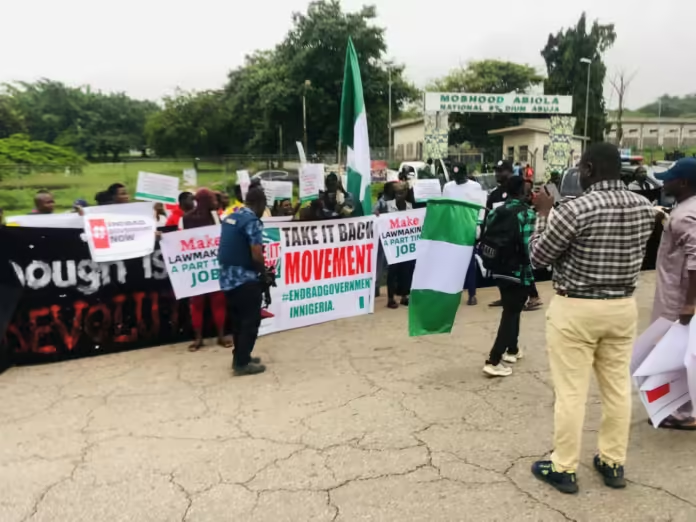115 years ago, in 1909, Walter Egerton, the Barrister-turned-colonial administrator, and then Governor, introduced the Sedition Ordinance into the Colony and Protectorate of Southern Nigeria. This drew a sharp response from Christopher Sapara Williams, Nigeria’s first lawyer, himself the son of an Egba mother and an Ijesha father, who challenged the Ordinance, describing it with considerable prescience as “a thing incompatible with the character of the Yoruba people, and has no place in their constitution…. Hyper-sensitive officials may come tomorrow who will see sedition in every criticism and crime in every mass meeting.”
Sapara Williams was Nigeria’s first articulate defender of civic dissent. The promulgation of the Sedition Ordinance was one of the fallouts of the Lagos Water Riots of 1908. The antecedents go back to the encounter between Lagos and colonial England. As the countries of Imperial Europe concluded their carve up of Africa in Berlin in February 1885, Oba Dosunmu of Lagos died, to be succeeded by his son, Oba Oyekan 1.
At the death of Oba Oyekan 1 on 30 September 1900, a fierce succession battle ensued. Sapara Williams was one of the lawyers instructed by the parties to the dispute. When the dust settled, his client, Adamaja, lost to the eventual winner and Oba Dosunmu’s grand-son, Eghugbayi Eleko who ascended the throne in 1901 but this did not becloud his clarity of principles on the rights of the peoples of the territory to protest. Unlike the supporters of Nigeria’s ruling All Progressives Congress (APC), Sapara Williams’ views on the right to protest did not depend on the ethnicity of the person in power.
That was one of the most tumultuous periods in the history of Lagos and coincided with a most intense period in the colonial territorial consolidation that would ultimately result in the notion of Nigeria. An inevitable conflict between the colonists and dissenting natives revolved around two issues: racial segregation which privileged whites; and free expression which patronized native populations. Over one century later, these same issues – discrimination and freedom of expression – continue to plague and define governance in Nigeria.
Sapara Williams was implacable in his support of the right to protest. Long after his untimely death in 1915, his position remained a source of inspiration to the Eleko and people of Lagos in an even more consequential dispute over the control of traditional lands in the colony. This issue ended up before the highest court with jurisdiction over the territory in the case of Amodu Tijani, decided by the Privy Council in July 1921. The Eleko rallied behind the Idejo Chiefs, led by Amodu Tijani, the Oluwa of Lagos, who had the support of Herbert Heelas Macaulay, grand-son of the first African Anglican Bishop, Michael Ajayi Crowther and veteran dissenter.
For the hearing before the Privy Council in 1920, Herbert Macaulay travelled to London with the Oba’s Staff of Office in support of Amodu Tijani and the Chiefs. While in London, Herbert Macaulay issued a statement claiming that the Eleko was the King of over 17 million Nigerians and in possession of territory more than three times that of Great Britain. Despite a healthy revenue of over Four Million Pounds, he claimed, the British had reneged on a treaty commitment to compensate the Eleko. Embarrassed at being publicly called duplicitous in this way, the British required the Eleko to disown Herbert Macaulay. He issued a public statement clarifying his position on Herbert Macaulay’s statement but declined to disown him through the Oba’s Bell Ringers as required by the colonists.
Unable to secure the support of the popular Eleko, the colonists chose to head off rising tension by deposing him. On 6 August 1925, they issued an ordinance de-stooling him and, two days later, on 8 August they arrested and removed the Eleko into internal banishment in Oyo. In his place, they installed Oba Ibikunle Akitoye.
Oba Akitoye’s rule lasted an uncomfortably brief three years largely because he lacked the support of the people of Lagos. Indeed, in 1926, he suffered physical assault by his people. Supported by the elite and people of Lagos, the deposed Eleko took his case to the courts, fighting all the way to the Privy Council who decided on 19 June 1928 in favour of his claim for leave for a writ of habeas corpus. This all but sealed the fate of Oba Akitoye, who is suspected to have facilitated his own earthly demise shortly thereafter.
Just as the Eleko was on his way to being reinstated in Lagos, the Aba Women’s Uprising took off in 1929. Like the “Lagos Water Riots”, it was also anchored on dissent over colonial taxation in the foreground of what would become an incomplete colonial head count in 1931. The pivotal moments in the uprising of the women of the East actually covered the territories of what would today be known as the states of Abia, Akwa Ibom, Bayelsa, and Rivers States.
On 16 December, 1929, Adiaha Mary Edem, a formidable female trader, led a contingent of women from the Andoni, Ibibio, and Ogoni nations, as well as women from Opobo Town to a meeting with the colonial officers at the Opobo Divisional Office. The purpose of the meeting was to address the concerns of the women over the new colonial tax proposals. In anticipation of the meeting, meanwhile, the Senior Divisional Officer (SDO) had arranged for the presence of well-armed soldiers from Calabar and Enugu under the command of Captain J. Hill.
Egbert Udo Udoma – the son of Adiaha Edem – who grew up to become Chief Justice of Uganda and Justice of the Supreme Court of Nigeria, testifies in his memoirs that around mid-day on the day, while he and his mates were still in school, they heard, “a loud report in the form of volleys being the sound of a discharge of rounds of gunfire by soldiers. It came as a shock to all of us at school when we were told that the soldiers had shot some of the women who held the meeting with the Divisional Officer.” One of the women killed on the day was his mother, Adiaha Edem. The reason for the massacre was that “at the meeting, the women had raised objection to the imposition of poll tax by the government. The SDO apparently did not like that; hence soldiers mowed down the women.”
20 years later, on 18 November 1949, the colonial authorities killed 21 miners and injured 51 others in Iva Valley, near Enugu. The most that came out of the inquiry that followed was the creation of the Ministry of Labour. Following the adoption of McPherson Constitution in 1951, Ladoke Akintola became Nigeria’s first Minister of Labour, as a direct result of the Iva Valley Massacre. In the period since then, organized labour has mostly been the biggest force of dissent and protest in Nigeria. That was at least until the onset of the digital revolution put the organization of protests to scale within reach of everyone with a digital device.
It is beyond ironic that rights of protest secured with the heroic sacrifices of Nigerians under colonial bondage are now endangered over six decades after Independence at the hands of a government that trumpets its electoral legitimacy supposedly through the votes of the same Nigerians whose rights to protest it, however, chooses not to respect.
The colonists defaulted to violence in response to protest because they lacked legitimacy with the natives. 95 years after the colonial regime massacred Opobo women in Ikot Abasi at the onset of the Aba Women’s Uprising, the response of Independent Nigeria to the idea of dialogue with its people under the government of Bola Ahmed Tinubu remains largely un-evolved and, if anything, even more lethal. Today as then, whenever government does that, it is because it suffers a costly crisis of legitimacy.
By Chidi Anselm Odinkalu
A lawyer and a teacher, Odinkalu can be reached at chidi.odinkalu@tufts.edu




